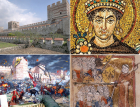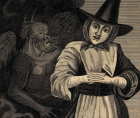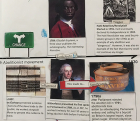Narrative in history
History teachers, academics and policy makers have often expressed concerns about the value accorded to narrative in school history, suggesting that an over-emphasis on certain concepts and processes – most obviously, causation and the critical evaluation of sources – has tended to obscure the importance of being able to put together a clear story. Constructing an effective narrative account, it has been argued, is not only an essential and demanding task in its own right and one that is fundamental to historians’ work; it is also the foundation on which other kinds of historical knowledge are built, and should therefore be more highly prized by teachers and within public examinations. Read more
-

Maximising the power of storytelling in the history classroom
ArticleClick to view -

‘Compressing and rendering’: using biography to teach big stories
ArticleClick to view -

Helping Year 8 to understand historians’ narrative decision-making
ArticleClick to view -

Year 7 use oral traditions to make claims about the rise and fall of the Inka empire
ArticleClick to view -

Planning a more diverse and coherent Year 7 curriculum
ArticleClick to view -

Using the concept of place to help Year 9 students to visualise the complexities of the Holocaust
ArticleClick to view -

Cunning Plan 183: Teaching a broader Britain, 1625–1714
ArticleClick to view -

Triumphs Show: Making their historical writing explode
ArticleClick to view -

Touching, feeling, smelling, and sensing history through objects
ArticleClick to view -

Beyond slavery
ArticleClick to view -

Curating the imagined past: world building in the history curriculum
ArticleClick to view -

Transatlantic slavery – shaping the question, lengthening the narrative, broadening the meaning
ArticleClick to view -

Film: What's the wisdom on... Enquiry questions (Part 2)
ArticleClick to view -

Film: What's the wisdom on... Enquiry questions (Part 1)
ArticleClick to view -

Changing thinking about cause
ArticleClick to view -

Unravelling the complexity of the causes of British abolition with Year 8
ArticleClick to view -

What’s in a narrative? Unpicking Year 9 narratives of change in Stalin’s Russia
ArticleClick to view -

Modelling the discipline
ArticleClick to view -

Harnessing the power of community to expand students’ historical horizons
ArticleClick to view -

Using narratives and big pictures to address the challenges of a 2-year KS3 curriculum
ArticleClick to view

